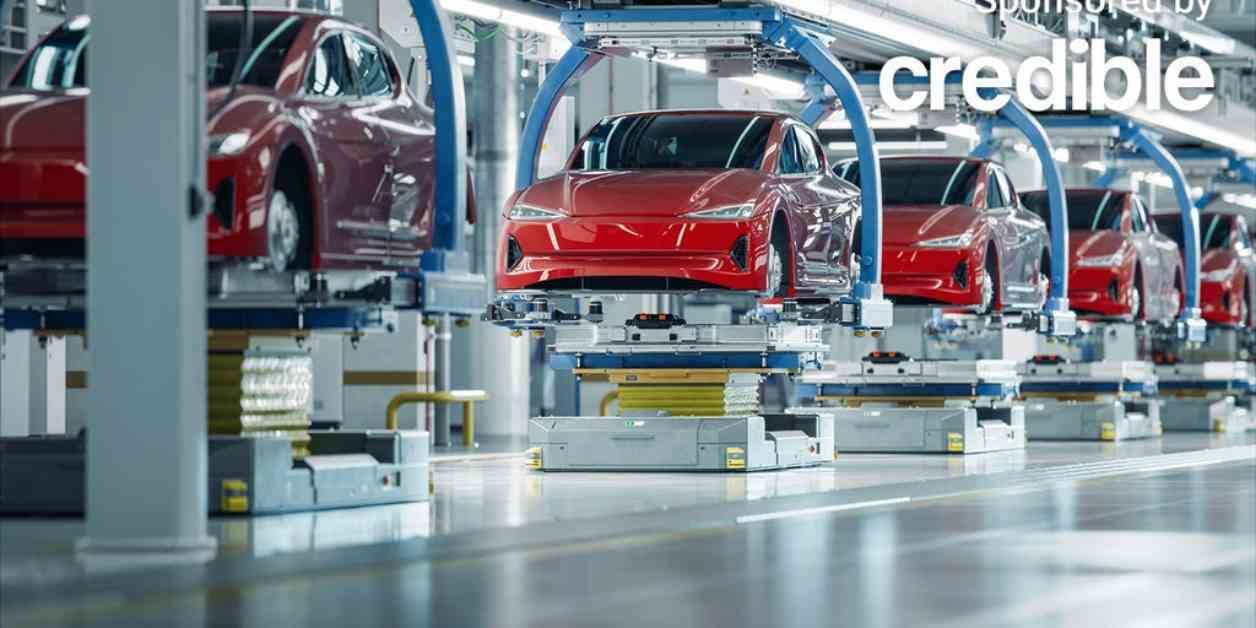The electric vehicle (EV) market is experiencing significant growth globally, with the second quarter of 2024 marking a record high in sales despite facing challenges for industry leader Tesla. According to a report from Kelley Blue Book, EV sales grew by an impressive 11.3% in the U.S., reaching a total of 330,463 units sold in the quarter. This growth can be attributed to several factors, including increased availability of EVs, continued discounts, and a rise in leasing options.
General Motors emerged as a key player in driving the surge in EV sales by introducing new products to the market. The company’s efforts to expand its electric vehicle lineup contributed to the overall growth in sales numbers. However, Tesla experienced a 6.3% year-over-year drop in sales volume during the same period, resulting in the company’s electric vehicle market share falling below 50% for the first time in the U.S.
Despite Tesla’s struggles, the overall electric vehicle market accounted for approximately 8% of all new vehicle sales in the second quarter, surpassing the 7.1% share recorded in Q1 2024. This increase in competition has led to continued price pressure, gradually driving higher adoption rates for EVs. As Stephanie Valdez Streaty, Cox Automotive Industry Insights Director, highlighted, automakers that offer the right product at the right price and prioritize consumer experience will lead the way in EV adoption.
Several notable new players entered the EV market in the second quarter, including the BMW i5, Cadillac Lyriq, Honda Prologue, and Kia EV9 SUV. General Motors also expanded its EV offerings by introducing over 21,000 new electric vehicles, including electric versions of popular models like the Chevy Blazer, Equinox, and Silverado.
Looking ahead, Valdez Streaty expressed optimism about the long-term outlook for electric vehicle sales, noting that the growth may be gradual but remains steady over time. As EV infrastructure and technology continue to improve, along with the launch of more models, the appeal of EVs is expected to increase, attracting more consumers to make the switch.
Amidst the growth in EV sales, the U.S. Senate has been exploring ways to boost electric vehicle manufacturing within the country. In a recent meeting, members of the Budget Committee discussed strategies to capitalize on the expanding EV market and enhance global competitiveness. Senators from both Democratic and Republican parties participated in the discussion, with Sen. Sheldon Whitehouse leading the meeting and Sen. Lindsey Graham highlighting the potential benefits of EV production for states with a strong automotive industry presence.
While some Republicans have voiced opposition to increasing EV production, citing concerns about President Biden’s ambitious targets for electric vehicle sales, Sen. Graham emphasized the potential for the U.S. to become a major player in EV manufacturing and enhance its infrastructure. However, challenges such as the capacity of the current electrical grid to handle the growing demand for electric vehicle charging and international competition, particularly from China, were raised during the hearing.
As the world’s largest manufacturer of electric vehicles, China has heavily supported its EV market through government funding, subsidies, and tax incentives, posing a significant challenge for the U.S. automotive industry. Sen. Debbie Stabenow, representing Michigan, another state with a significant automotive presence, expressed doubts about the U.S.’s ability to keep up with China’s rapid advancement in the EV sector.
In the broader auto industry landscape, the market is showing signs of stabilization for consumers, with used and new car prices trending downward. The easing of supply constraints, which were prevalent during the pandemic, has empowered buyers to negotiate better deals and avoid paying inflated prices for vehicles. Dealers, on the other hand, are compelled to offer discounts and incentives to attract buyers in the current market environment.
Despite the favorable conditions for consumers, financing a vehicle remains a challenge due to high interest rates, impacting the affordability of car ownership. Coupled with persistent high auto insurance rates, many drivers continue to face financial barriers to owning a vehicle. The competition from the EV market has also posed challenges for dealerships and automakers, with Ford CEO Jim Farley acknowledging the humbling experience of navigating the company’s transition to electric vehicles.
In conclusion, the electric vehicle market has witnessed remarkable growth in the second quarter of 2024, with sales reaching record highs despite challenges faced by industry leaders like Tesla. With increasing competition, evolving technology, and a shifting regulatory landscape, the future of the EV market looks promising. As consumers benefit from a more balanced auto industry, the push towards electric vehicles is expected to drive further innovation and adoption in the coming years.














